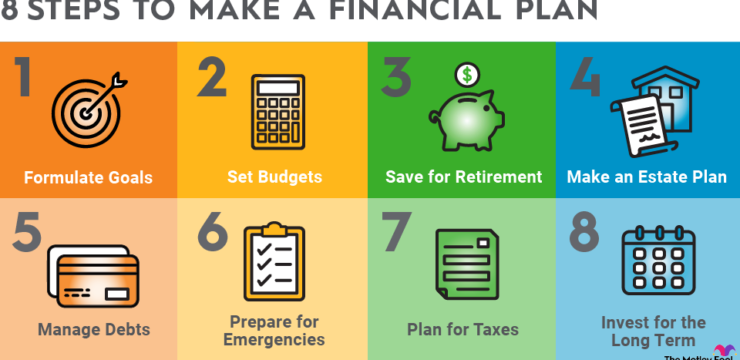
Managing your finances effectively doesn’t have to be overwhelming. Whether you’re saving for retirement, a dream vacation, or simply seeking financial security, a clear plan can make all the difference. This 3-step guide will help you take control of your money and achieve your financial goals with confidence.
Step 1: Assess Your Current Financial Situation
Before creating a plan, you need a clear understanding of your financial standing. Here’s how to get started:
Track Your Income and Expenses: Record all sources of income and categorize your expenses (e.g., housing, groceries, entertainment). Apps like Mint or YNAB can help.
Evaluate Your Assets and Liabilities: List everything you own (bank accounts, investments, property) and what you owe (credit card debt, loans).
Understand Your Net Worth: Subtract liabilities from assets to calculate your net worth. This number provides a snapshot of your financial health.
Step 2: Set Clear and Achievable Goals
Having specific financial goals will guide your planning and motivate you to stick to it. Here’s what to consider:
Short-Term Goals: These can include building an emergency fund, paying off credit card debt, or saving for a vacation.
Medium-Term Goals: Examples are saving for a down payment on a house or pursuing further education.
Long-Term Goals: These might involve retirement savings or creating a college fund for your children.
Use the SMART criteria to set goals: Specific, Measurable, Achievable, Relevant, and Time-bound. For example, instead of saying, “I want to save money,” specify, “I will save $10,000 for a down payment on a house within two years.”
Step 3: Create and Follow a Budget
A budget is the backbone of financial planning. It helps you allocate resources effectively and ensures you’re working towards your goals. Here’s how to build one:
Choose a Budgeting Method: Popular methods include:
The 50/30/20 Rule: Allocate 50% of your income to needs, 30% to wants, and 20% to savings or debt repayment.
Zero-Based Budgeting: Assign every dollar a job, ensuring your income equals your expenses and savings combined.
Automate Your Savings: Set up automatic transfers to your savings or investment accounts. This removes the temptation to spend and builds your savings effortlessly.
Review and Adjust Regularly: Life changes, and so should your budget. Review it monthly or quarterly to ensure it aligns with your current circumstances and goals.
Bonus Tips for Success
Seek Professional Advice: A financial advisor can provide personalized guidance tailored to your needs.
Educate Yourself: Read books, attend seminars, or take online courses on financial literacy to empower your decision-making.
Stay Disciplined: Avoid impulse purchases and stick to your plan. Remember, financial success takes time and consistency.
Conclusion
Effective financial planning doesn’t require complex strategies. By assessing your current situation, setting clear goals, and sticking to a well-structured budget, you can pave the way to financial freedom. Start today, and watch your financial confidence grow!






